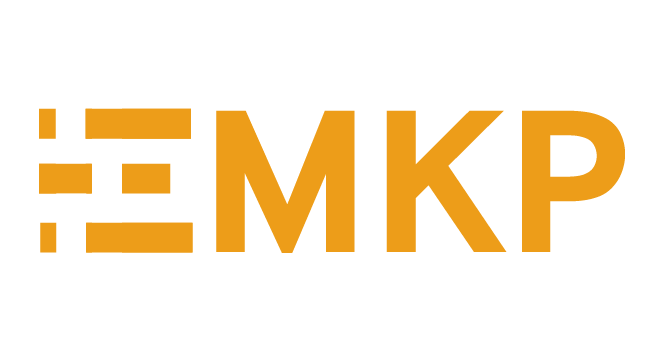The Endangered Material Knowledge Programme (EMKP) was happy to host its first round of grantees at the British Museum from the 1st to the 8th September for our annual training in ethnographic documentation. We welcomed seventeen trainees specialising in design, musicology, archaeology, anthropology and linguistics and at different stages in their careers from across the globe. This variety of backgrounds and experience in different disciplines and environments created a collegial environment that encouraged the exchange of knowledge. People could talk freely about the problems they expect to encounter during fieldwork and how to deal with them.
As the week went on, we could see excitement, contemplation and sometimes even confusion in our grantees’ eyes as they engaged with the topics, our presenters and teachers, the software, the challenges we gave them and each other’s projects. However, the week was about more than just the training. It is an opportunity for EMKP to get to know and engage with its grantees, have in-person discussions with them, and to network and present the work we all do in a more personable environment.
Even though the training was long and intense, the grantees maintained their enthusiasm and it was a joy to have them visit us and to teach them.
The Training
The aim of the training was to reflect on the broader issues and goals associated with documenting material culture and practices. We especially discussed the processes and aspects ethnographers could focus on, the methods and set-ups used when recording (material) culture in (in)action and how to create a digital record that guarantees that information is preserved and can be reused by others. Additionally, the training was a chance for our grantees to experience a range of different practical techniques they can use during fieldwork and to introduce them to ethical and practical aspects of an EMKP project.
The training in particular involved a discussion why we should document material practices, how to explore the complexities of material knowledge systems, what they tell us about our societies, and what results and interpretations the different methods and media can give us. Mandana Seyfeddinipur, the director of the Endangered Languages Documentation Programme (ELDP), gave a presentation on the work her programme has been doing for the past twenty years and how language can tell us how people relate to objects.
We also introduced our grantees to the EMKP metadata standard, a key part of making the ethnographic records reusable and preserving information. Grantees were taken through the legal requirements of their projects as they have to comply with the GDPR and the practical and ethical ramifications of Open Access, Creative Commons licences, and Intellectual Property Rights. Getting to grips with new software was also important. We used Adobe Premiere Pro for video editing and ELAN for video and audio annotation.
A day with the British Museum’s broadcasting team also helped our grantees get a handle on the technicalities of video and sound recording, what equipment to consider depending on their needs, as well as what it feels like to be in front of the camera. The Museum’s curators also gave a helping hand and showed the grantees object collections relevant to their projects. Finally, the grantees were given the challenge to record some of the work taking place behind the scenes of the museum.
Take home message
The training was extremely useful to the grantees as it gave them time to interact with EMKP members and ascertain how to best approach their individual projects and what is expected from them. More importantly, large parts of the training week were practical in nature. This allowed the grantees to ask questions and solve problems as soon as they occurred and it created a more engaging and vibrant training environment.
During the training many realised that while they have considered in detail what video recording equipment to use, many forgot about what the most suitable audio set-up might be. Moreover, the video annotation software ELAN was considered quite unapproachable. The software was developed for linguists. However, its significant capabilities of providing additional contextual information to audio(-visual) recordings (e.g. translations, transcriptions, commentary etc.), make it suitable for use by other individuals. The grantees, on the other hand, found the software cumbersome and of little use to somebody from the general public.
Overall, it was a great start of what will become an annual occurrence.
List of attendees
Akall Gregory, Associated with Uni. of Oxford, Kenya
Babalola Abidemi, University of Cambridge, UK
Barcelos Neto Aristoteles, University of East Anglia, UK
Derbyshire Samuel, University of Oxford, UK
Diffre-Odiete Akpobome, South-Western Edoid Institute, Nigeria
Douny Laurence, Humboldt University, Germany
Gavua Kodzo, University of Ghana, Ghana
Gonzalez-Ruibal Alfredo, CSIC – Instituto de Ciencias del Patrimonio, Spain
Grant Catherine, Griffith University, Australia
Lunn-Rockliffe Samuel, University of Oxford, UK
Mohajer va Pesaran Daphne, Royal Melbourne Institute of Technology, Australia
Peter-Samat Tracy, University of Durham, UK
Salazar Bonet Juan, Florida State University – Valencia, Spain
Sarah Doyle, Further Arts, Vanuatu
Siriphon Wuthigrai, Thammasat University, Thailand
Smolderen Lucie, Free University of Brussels, Belgium
Waura Pirata, Associated with Uni. of East Anglia, Brazil
Wong Ethan, University of Oxford and British Museum, UK
